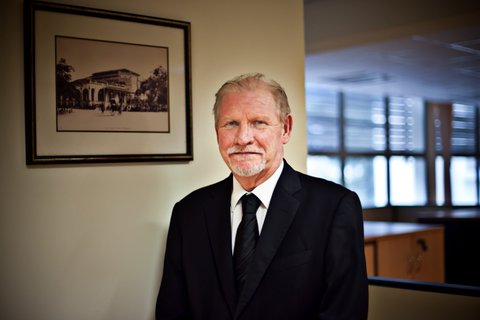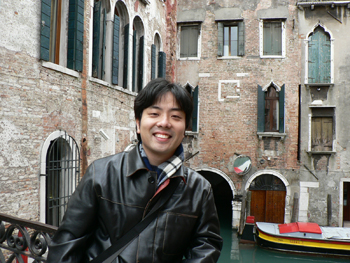Young Children’s Voices in Mathematical Problem Solving
Contributed by Dr Ho Siew Yin and Sng Wei Qin Abbie, from NTUC First Campus, for SingTeach Virtual […]
Read More
Oh, Literature is Literature, and English Language is English Language, and never the twain shall meet in school? Of course they do! We find out why and how teachers should use literature to enhance their students’ learning of the English Language.
Even though they are offered as two different subjects in Singapore schools, Literature and English Language (EL) are closely related. Language is the raw material of literature, as stone and bronze are of sculptures (Wellek & Warren, 1973), while works of literature showcase the beauty and versatility of the language as they narrate stories of the human experience.
Some teachers are including literary texts in their EL curriculum, so that students can experience the richness of the English language. But other than providing exemplary models of writing, literature works (and Literature as a subject) can challenge students to grow in other ways.
We posed the following question to three EL educators to find out how literature can help students become discerning thinkers and readers.

The English Language Syllabus 2010 was designed to achieve a “strong foundation and rich language for all”, with the emphasis on developing language skills, especially oracy and an appreciation of English. It recommends an integrated, authentic and holistic approach, and therein, l feel, lies the unique value of literature in the language classroom.
Literature provides almost unlimited points of departure for learners to embark on activities to stimulate critical and aesthetic responses; not only reading, listening and viewing, but also discussing, writing and performing. Literature transports learners to other places and other times and exposes them to real-life values.
The close study of literary language can reveal the infinite variety of expression available in English, which in turn can sensitize learners to its nuances, its beauty, its wit and its sounds. Not least, literature can be used to show them how writing entails making choices to create an impact on the reader and through this, the study of the forms and structures of language – vocabulary, grammar and syntax – is transformed from being a series of dry drills and exercises into something living and relevant to the learner’s need to communicate effectively in a complex world.
 As I always tell my student teachers, Literature is not so much about what you know as how you know things. For me at least, it describes a state of mind – or what we may term a critical consciousness – as much as an academic discipline bound to specific content knowledge.
As I always tell my student teachers, Literature is not so much about what you know as how you know things. For me at least, it describes a state of mind – or what we may term a critical consciousness – as much as an academic discipline bound to specific content knowledge.
This is a particularly important in EL, where the curriculum increasingly demands that our students negotiate a diverse array of multimodal texts in equally varied styles and contexts. This is not simply a matter of providing exposure to a vast array of visual and verbal stimuli, but about developing a critical disposition to handle new and unprecedented text types and situations.
“Doing literature” is not a simple matter of reading good books and writing about them. That is only half the story, so to speak.
Literature is a verbal art form. Its medium is language and its ultimate intention is dialogue. This means that its value (and indeed, meaning) is the subject of constant negotiation between text and reader, between reader and reader, and between the reader and the world.
Literature represents the most intimate and intensely rich human experiences an individual may have with written language. It makes students sensitive to how human beings communicate with each other through the symbolic and metaphorical. It thus lays the platform for all meaningful interactions with texts, both visual and verbal.
Literature is both powerful and transformative as it gives voice to the intensity of human feeling and action, in all its ugliness, absurdity and beauty. It constantly shocks, provokes and disturbs us into new and heightened states of awareness about our capacity for human agency, creativity and imaginative life that would otherwise go unrealized. Literature, in other words, helps us to achieve our human potential in unprecedented ways.
 Literature is certainly highly valued, if you were to look at the Learning Outcome (LO) 4 in English Language Syllabus 2010, which talks about close and critical reading and viewing by using a variety of literary selections and informational/functional texts, from print and non-print sources, for learning in the literary/content areas and to understand lexical and grammatical items in context.
Literature is certainly highly valued, if you were to look at the Learning Outcome (LO) 4 in English Language Syllabus 2010, which talks about close and critical reading and viewing by using a variety of literary selections and informational/functional texts, from print and non-print sources, for learning in the literary/content areas and to understand lexical and grammatical items in context.
Drawing on literary texts or extracts from the three genres of prose, poetry and drama, students can learn about a wide range of styles and literary language literary devices, such such as simile, metaphor and image. This will enhance not only reading (which in turn helps them understand the new comprehension questions) but also writing and speaking.
One useful strategy for promoting reading of literary texts and developing higher order thinking skills is Directed Reading and Thinking Activity (DRTA), developed by Stauffer (1969).
It provides opportunities for teachers to guide students to think like good readers in asking questions about a text, making predictions, and then reading to confirm or refute their predictions, as well as modifying their ideas as the story unfolds (Blachowich & Ogle, 2008). DRTA can be used to teach for inferring information, justifying responses, monitoring comprehension as well as understand the narrative structure.
References
Blachowicz, C., & Ogle, D. (2008). Reading comprehension: Strategies for independent learners. (2nd ed.). London, England: The Guilford.
Stauffer, R. G. (1969). Directing reading maturity as a cognitive process. New York, NY: Harper & Row.
Wellek, R., & Warren, A. (1973). Theory of literature. New York, NY: Harcourt Brace and World.